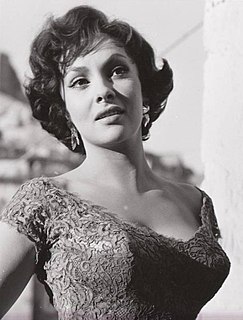A Quote by Robert Baden-Powell
One of the powerful temptations is that of the cinema palace. The cinema has undoubtedly an enormous attraction for boys, and people are constantly cudgelling their brains how to stop it. But it is one of those things which would be very difficult to stop even if it were altogether desirable.
Related Quotes
When you look back over 100 years when stop-motion was really at the dawn of cinema, a lot of the ways it developed was you had stage magicians who were looking to bring their illusions to life, and one of the ways they did that, at the time, was through cinema and stop-motion. They developed these processes.
MORE CONSISTENTLY THAN EVER I WAS TRYING TO MAKE PEOPLE BELIEVE THAT CINEMA AS AN INSTRUMENT OF ART HAS ITS OWN POSSIBILITIES WHICH ARE EQUAL TO THOSE OF PROSE. I WANTED TO DEMONSTRATE HOW CINEMA IS ABLE TO OBSERVE LIFE, WITHOUT INTERFERING, CRUDELY OR OBVIOUSLY, WITH ITS CONTINUITY. FOR THAT IS WHERE I SEE THE POETIC ESSENCE OF CINEMA.
I started inventing things, and then I couldn't stop, like beavers, which I know about. People think they cut down trees so they can build dams, but in reality it's because their teeth never stop growing, and if they didn't constantly file them down by cutting through all of those trees, their teeth would start to grow into their own faces, which would kill them. That's how my brain was.
The structure of my novels has nothing to do with the narrative mode of cinema. My novels would be very difficult to film without ruining them completely. I think this is the area where writers need to place ourselves: from a position of absolute modernity and contemporaneity, creating a culture of objects which cinema cannot.
Cinema has changed the world. If you go to the beginning of the cinema, you can see that the world started meeting other worlds. It was extraordinary. We saw how other people were living and thinking. How they were sad or happy. We also saw the body - naked or half-naked people, which was prohibited everywhere by religions. This was extremely important.
The whole point of art, as far as I’m concerned, is that art doesn’t make any difference. And that’s why it’s important. Take film: you can have quite extreme emotional experiences watching a movie, but they stop as soon as you walk out of the cinema. You can see people being hurt, but even though you feel those things strongly, you know they’re not real.






































